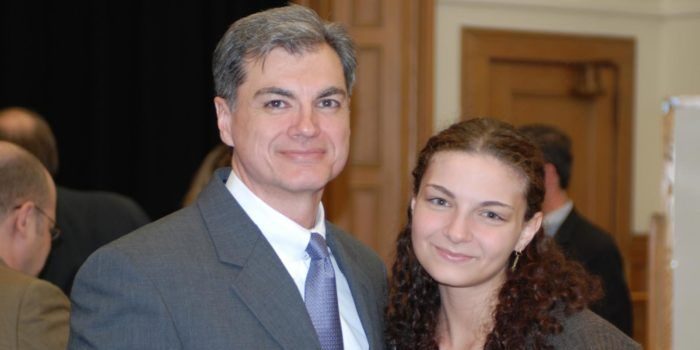(Ben Sellers, Headline USA) New York Judge Juan Merchan, who had indefinitely suspended President-elect Donald Trump’s sentencing following a Supreme Court ruling that upended the lawfare conviction last year, demanded that Trump appear virtually or in person to be sentenced in the porn star case.
🚨BREAKING: Judge has ordered Trump to appear for sentencing in the New York hush money case on Jan. 10, shortly before inauguration. pic.twitter.com/QwkWkX3JxK
— Benny Johnson (@bennyjohnson) January 3, 2025
Trump was summoned to appear before the court at 9:30 a.m. on Jan. 10—just 10 days before he is again inaugurated as president.
Merchan insisted that there was “no impediment” to moving forward with the sentencing.
However, reports indicated that the disposition will be an “unconditional discharge,” with Merchan effectively acknowledging that he could not impose an actual sentence but did not want to simply expunge the case—and Trump’s “felon” status—from the record.
Trump was expected to file for a stay of the hearing, although Merchan has thus far rejected all efforts to dismiss the case.
The petty demand was the latest effort by Merchan to leave a black mark on the Republican leader, even after voters rendered their verdict by re-electing Trump in November—in what signaled a clear repudiation for the leftist abuses of the court system.
Merchan—whose daughter Loren received millions from Democrat politicians, including Democrat nominee Kamala Harris, for campaign work—refused to recuse himself in the case and made several rulings that were highly suspect, taking considerable liberties with the rule of law.
Judge Merchan himself was exposed as a Biden donor—also grounds for recusal under New York law.
Nonetheless, Merchan tried to deflect from his malpractice by accusing Trump of showing “disdain” for the court system during the contentious trial, which forced him off the campaign trail for several weeks.
The judge also imposed a sweeping gag order on Trump to prevent him from defending himself in the courtroom of public opinion and to prevent Trump from criticizing the judge’s own decisions.
Merchan was forced to delay the sentencing, initially set before the election, when the Supreme Court ruled in a separate lawfare case that presidents were protected by broad immunity for many official acts.
Manhattan District Attorney Alvin Bragg and his team of partisan prosecutors relied heavily on testimony from Trump administration officials, including former adviser Hope Hicks, in order to assert that Trump had been engaged in the cover-up of an effort to pay off accusers, including porn-star Stormy Daniels, ahead of the 2016 election.
Trump maintained his innocence, denying that he had engaged in the alleged extramarital affairs 10 years earlier, shortly after his wedding to third wife Melania Trump.
The case languished for seven years, with the Justice Department determining it had insufficient evidence to proceed with federal charges. However, the George Soros-funded Bragg, facing pressure from members of the Biden Justice Department, decided to try the case on the state level, despite its having exceeded the federal statute of limitations.
New York’s charges for the crime were misdemeanors, but Bragg used legal gymnastics to upgrade them to felonies. Merchan colluded with the prosecutors by allowing jurors to pick and choose the requisite second charge needed to make it a felony, without specifying what the actual crime was.
The case was one of at least six major cases in which leftist prosecutors targeted Trump through questionable interpretations of the law. He was found guilty in four cases tried in deep-blue New York.
In a civil case waged by Democrat New York Attorney General Letitia James, Trump was ordered to pay nearly half a billion dollars for valuing his real estate holdings in a way that the far-left Judge Arthur Engoron thought was inaccurate.
Leftist judge Lewis Kaplan presided over another civil trial, ordering Trump to pay nearly $90 million for twice denying that the highly dubious claims of serial rape accuser E. Jean Carroll were legitimate.
Trump also faced two federal cases waged by ex-special counsel Jack Smith and a racketeering case waged by Fani Willis, the embattled district attorney in Fulton County, Georgia.
All of those cases were dropped or indefinitely delayed after the prosecutorial overreach failed to convict him prior to the election.
Several of the prosecutors have released statements expressing fear that they might now face legal accountability for their actions, with some calling on President Joe Biden to pre-emptively pardon them.
Ben Sellers is the editor of Headline USA. Follow him at x.com/realbensellers.

